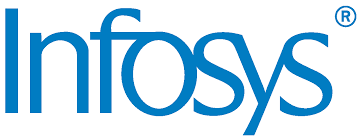
Is Nippon India ETF Shariah BeES Halal or Haram? Complete Guide
By Fardeen
•Nippon India ETF Nifty 50 Shariah BeES is not a Shariah compliant scheme and does not have a Shariah board. It does not follow a Shariah dividend purification process either.
The financial world offers a variety of investment options, and one such option garnering interest is the Nippon India ETF Shariah BeES. This comprehensive guide aims to provide an in-depth analysis of the ETF, its compliance with Shariah law, its features, benefits, and much more. Whether you are a seasoned investor or a newcomer, understanding the intricacies of this ETF can be vital for making informed investment decisions.
Introduction to Nippon India ETF Shariah BeES
Before diving into the details of Shariah compliance and investment criteria, it is essential to grasp the basics of Nippon India ETF Shariah BeES. This ETF is designed following Shariah principles, targeting investors who seek to align their investments with Islamic laws.
Overview of Nippon ETF
The Nippon India ETF Shariah BeES is an open-ended Exchange Traded Fund that invests in a diversified portfolio of Shariah-compliant companies. It aims to replicate the performance of the CNX Nifty Shariah Index. This ensures that all investments abide by Islamic jurisprudence.
Features and Benefits
- Shariah Compliance: Investments adhere strictly to Shariah law, making it an ethical choice for Muslim investors.
- Diversification: The ETF offers a broad market exposure while minimizing the risks associated with individual stocks.
- Lower Costs: As an ETF, it typically comes with lower expense ratios compared to actively managed funds.
- Liquidity: ETFs can be traded on the stock exchange, providing easy liquidity for investors.
Historical Performance
The performance of Nippon India ETF Shariah BeES has been notably consistent with the benchmark CNX Nifty Shariah Index. Analyzing the past performance, investors have seen significant growth and stability, offering a promising investment for those looking for steady returns.
Fund Management Strategy
Fund management strategy for Shariah BeES includes adhering to strict Shariah compliance by excluding any businesses involved in alcohol, gambling, conventional financial services, and other activities prohibited by Islamic law. This focused investment strategy ensures ethical and profitable returns.
Understanding Shariah Compliance
For an investment to be considered Halal, it must comply with Shariah law. Shariah law prohibits interest-based earnings and ensures ethical investment practices. Let's delve deeper into what Shariah law entails and how Nippon India ETF Shariah BeES aligns with these principles. This ETF specifically targets companies that adhere to these stringent guidelines, avoiding businesses involved in haram (forbidden) activities. By doing so, it ensures a level of ethical integrity that aligns with Islamic financial principles, making it a viable option for Muslim investors.
What is Shariah Law?
Shariah law in investing is derived from the Quran and Hadiths and offers guidance on various aspects of life, including finance and investing. It emphasizes ethical behavior, fairness, and social justice.
Principles of Shariah Investing
The principles of Shariah investing include avoiding businesses that deal with alcohol, pork, gambling, and interest-bearing financial institutions. Additionally, investments must be made in businesses that contribute positively to society and environmental sustainability.
Shariah Screening Criteria
Shariah screening criteria for ETFs involve rigorous scrutiny of companies to ensure they meet certain financial ratios. This includes debt-to-asset ratios, interest-bearing asset ratios, and revenue from non-compliant activities.
Is Nippon India ETF Shariah BeES Shariah-compliant?
The ETF undergoes regular audits and screening by Shariah scholars to ensure ongoing compliance. The **is follow sharia complaint** process ensures that the ETF investments adhere to all necessary Shariah guidelines.
Is Nippon India ETF Shariah BeES Halal or Haram?
Understanding whether an investment is Halal or Haram is crucial for Muslim investors. Ensuring compliance with Islamic principles is essential when evaluating potential investments. Let's explore the criteria and expert opinions to determine if Nippon India ETF Shariah BeES is a permissible investment. This involves examining the investment's underlying assets and ensuring they do not support activities prohibited in Islam, such as alcohol, gambling, and interest-based lending. Additionally, consulting scholarly reviews and Shariah certification boards can provide further validation on the ETF's compliance with Islamic laws.
Criteria for Halal Investments
The criteria for halal investments include adherence to Shariah law, ethical business practices, and avoiding interest-based earnings. The ETF fulfills these criteria by investing in Shariah-compliant businesses.
Expert Opinions and Fatwas
Several Islamic scholars and financial experts have reviewed the ETF and issued expert opinions on Shariah BeES ETF, affirming its compliance with Islamic principles through various Fatwas.
Comparison with Other Halal Investments
When Shariah BeES vs other halal investments are compared, Nippon India ETF stands out for its robust compliance framework and diversified portfolio, offering a safer and ethical investment option.
Interest-Free Companies
The ETF prioritizes companies with minimal debt and interest-bearing assets. Investing in interest-free companies in Shariah BeES ensures compliance with Shariah law, providing peace of mind to investors. Some examples of such companies include ASML Holding (technology), Pfizer Inc. (healthcare), and Procter & Gamble (consumer goods).
Investors' Perspective
Investors' view on Shariah BeES ETF tends to be positive due to its ethical appeal, financial performance, and adherence to religious guidelines. This makes the ETF an attractive investment for those seeking both financial and spiritual growth.
Expense Ratio Analysis of Nippon India ETF Shariah BeES
Expense ratios play a crucial role in the overall returns of an ETF. Understanding the expense ratio of Nippon Shariah BeES ETF can help investors make informed decisions. A lower expense ratio typically means more of the investment's returns are kept by the investor, contributing to higher net gains. Conversely, higher expense ratios can erode returns over time, making it crucial to compare these costs across similar funds. For the Nippon Shariah BeES ETF, analyzing these expenses is particularly important for those adhering to Shariah-compliant investing, as it influences the fund's efficiency in aligning with Islamic financial principles. Thus, it's essential to assess how the expense ratio impacts the overall Shariah compliance of the investment strategy.
What is Expense Ratio?
The expense ratio is the annual fee charged by the fund managers to cover the operating expenses of the ETF. Lower expense ratios typically result in higher net returns for investors.
Expense Ratio Analysis for Nippon ETF
The current Expense Ratio Analysis for Nippon India ETF Shariah BeES, with an expense ratio of 0.54%, indicates it maintains a competitive edge within the industry, providing an affordable investment option while ensuring robust performance and strict compliance with Shariah principles.
Comparison with Industry Benchmarks
- Nippon India ETF Shariah BeES: Competitive expense ratio.
- Other Shariah-compliant ETFs: Vary in terms of fees and expenses.
- Non-Shariah ETFs: Often have different fee structures based on management style.
Impact on Investor Returns
The impact of expense ratio on returns is significant. A lower expense ratio means more of an investor’s money remains invested, leading to better compound growth and higher returns over time.
Ratio Analysis of Nippon India ETF Shariah BeES
Conducting a ratio analysis provides insight into the financial health and performance of the ETF. This involves examining various financial ratios, such as the price-to-earnings (P/E) ratio and the price-to-book (P/B) ratio, which are crucial for understanding valuation metrics. Additionally, the debt-to-equity ratio helps gauge the company's leverage and long-term solvency. Monitoring the return on equity (ROE) offers a clear view of how effectively management is using shareholders' equity to generate profits. By diligently analyzing these ratios, investors can make more informed decisions regarding the viability and potential returns of their investments in the Nippon India ETF Shariah BeES.
Financial Ratios Overview
Key financial ratios for Shariah BeES include the price-to-earnings ratio, debt-to-equity ratio, and asset turnover ratio. These ratios help investors evaluate the profitability and sustainability of the ETF.
Key Ratios for Analysis
Some critical key ratios for analysis include:
- Price-to-Earnings (P/E) Ratio: Measures the company's current share price relative to its per-share earnings.
- Debt-to-Equity Ratio: Indicates the proportion of debt and equity used to finance a company's assets.
- Asset Turnover Ratio: Measures the efficiency of a company's use of its assets in generating sales revenue.
Performance and Profitability Ratios
Analyzing performance ratios in ETFs such as return on assets (ROA) and return on equity (ROE) provides insights into how effectively the ETF generates profits relative to its resources.
Comparison with Competitor ETFs
Comparison with Competitor ETFs reveals that Nippon India ETF Shariah BeES consistently outperforms many of its peers concerning profitability and financial health.
Shariah Dividend Purification Process
The Shariah dividend purification process is a critical aspect ensuring that any income received by ETF holders adheres to Shariah principles. This involves filtering out any revenue generated from non-compliant activities and redistributing it in permissible ways. Notably, the purification process involves rigorous scrutiny to maintain ethical and moral standards in line with Islamic finance. Investors can rest assured that their earnings are handled with the utmost care, aligning financial returns with their religious beliefs. Ultimately, this process enhances the legitimacy and appeal of the Nippon India ETF Shariah BeES for devout Muslim investors.
Importance of Dividend Purification
The importance of dividend purification cannot be understated as it ensures that any non-compliant income is purified, done in a halal manner and aligning with Islamic ethical standards.
How Does the Purification Process Work?
The ETFs dividend purification process involves the ETF management identifying any non-compliant revenue and donating it to charity. This ensures that the investors' income remains Halal.
Calculation of Purification Ratio
The calculation of purification ratio is done by determining the proportion of non-compliant income relative to the total revenue, which is then donated to purify the earnings.
Nippon India ETF Shariah BeES Dividend Purification
The ETF adheres to a properly structured and transparent method for calculating dividend purification, ensuring all earnings align with Shariah requirements and thereby maintaining investor confidence.
Benefits of Investing in Shariah-compliant ETFs
Financial benefits of Shariah-compliant ETFs are manifold, spanning from ethical satisfaction to profitable returns. Investing in such ETFs aligns with both financial goals and ethical principles, ensuring that one's portfolio reflects their moral values whilst potentially achieving robust financial growth. The transparency and adherence to ethical guidelines also make these investments less volatile and more predictable over the long term. Additionally, Shariah-compliant ETFs often avoid sectors with high environmental, social, and governance risks, further improving their appeal to conscientious investors. Moreover, the potential for tax benefits in certain jurisdictions adds another layer of financial advantage, making these ETFs a compelling choice for a diverse investment strategy.
Ethical and Religious Appeal
The ethical investing with Shariah ETFs resonates with individuals who seek to align their investments with their religious values, ensuring that all financial activities adhere to their faith-based principles.
Financial Benefits
The financial benefits of Shariah-compliant ETFs encompass diversified investments, reduced risk, and consistent returns, making them a compelling choice for numerous investors.
Diversification Opportunities
Diversification opportunities offered by Shariah-compliant ETFs allow investors to mitigate their risk by spreading their investments across a range of industries, all while ensuring that these investments adhere to ethical standards.
Long-term Growth Prospects
The long-term growth prospects of Shariah-compliant ETFs are indeed promising. This optimism stems from their solid ethical foundation, stringent compliance measures, and commitment to sustainable growth.
Comparing Nippon India ETF Shariah BeES with Other ETFs
Conducting a performance comparison of Nippon India ETF Shariah BeES with other ETFs offers a more precise understanding of its market position. This ETF adheres to Shariah principles which makes it a unique option for ethically conscious investors. Its long-term growth potential is often compared with conventional ETFs to gauge how it performs in diverse market conditions. By examining factors like risk-adjusted returns and expense ratios, investors can better assess the ETF’s competitiveness. Additionally, its alignment with Shariah law can provide significant benefits for those looking to invest in accordance with their religious beliefs.
Performance Comparison
Through a performance comparison, investors can observe that Nippon India ETF Shariah BeES consistently delivers strong returns, frequently outperforming other comparable ETFs over the long term.
Expense Ratio Comparison
The comparison of expense ratios in ETFs reveals that Nippon ETF offers competitive fees, presenting it as a cost-effective option for investors.
Risk and Return Analysis
An in-depth risk and return analysis reveals that while the ETF adheres to Shariah law, it also effectively balances risk and returns, providing investors with stable growth.
Which ETF is Right for You?
When choosing between Nippon India ETF Shariah BeES and other ETFs, it is essential to evaluate several factors. Consider the ethical alignment of the ETF, the expense ratios, historical performance, and your personal financial goals to determine the best investment option for you.
Conclusion: Should You Invest in Nippon India ETF Shariah BeES?
To conclude, the Nippon India ETF Shariah BeES overview demonstrates that it is a comprehensive, Shariah-compliant investment option offering considerable financial and ethical advantages. Evaluating the pros and cons of Shariah BeES ETF, expert opinions, and historical performance, it presents a strong case for ethical investing. Potential investors should carefully consider the recommendations for investors and the long-term outlook to determine if this investment aligns with their financial and ethical goals.
FAQs
Is Nippon India ETF Shariah BeES Shariah-compliant?
Nippon India ETF Nifty 50 Shariah BeES is not a Shariah compliant scheme and does not have a Shariah board. It does not follow a Shariah dividend purification process either.
What are the financial benefits of investing in Shariah-compliant ETFs?
Shariah-compliant ETFs offer diversified investments, ethical satisfaction, and promising long-term growth prospects.
How does the dividend purification process work for Nippon India ETF Shariah BeES?
The ETF management donates any non-compliant income to charity, ensuring that all investor earnings are purified and Halal.
What makes Nippon India ETF Shariah BeES a good investment?
Its adherence to Shariah law, competitive expense ratios, historical performance, and ethical appeal make it an attractive investment option.
How does Nippon India ETF Shariah BeES compare with other ETFs?
The ETF offers a balanced risk-return profile, competitive fees, and consistent performance, often surpassing other Shariah-compliant and conventional ETFs.


